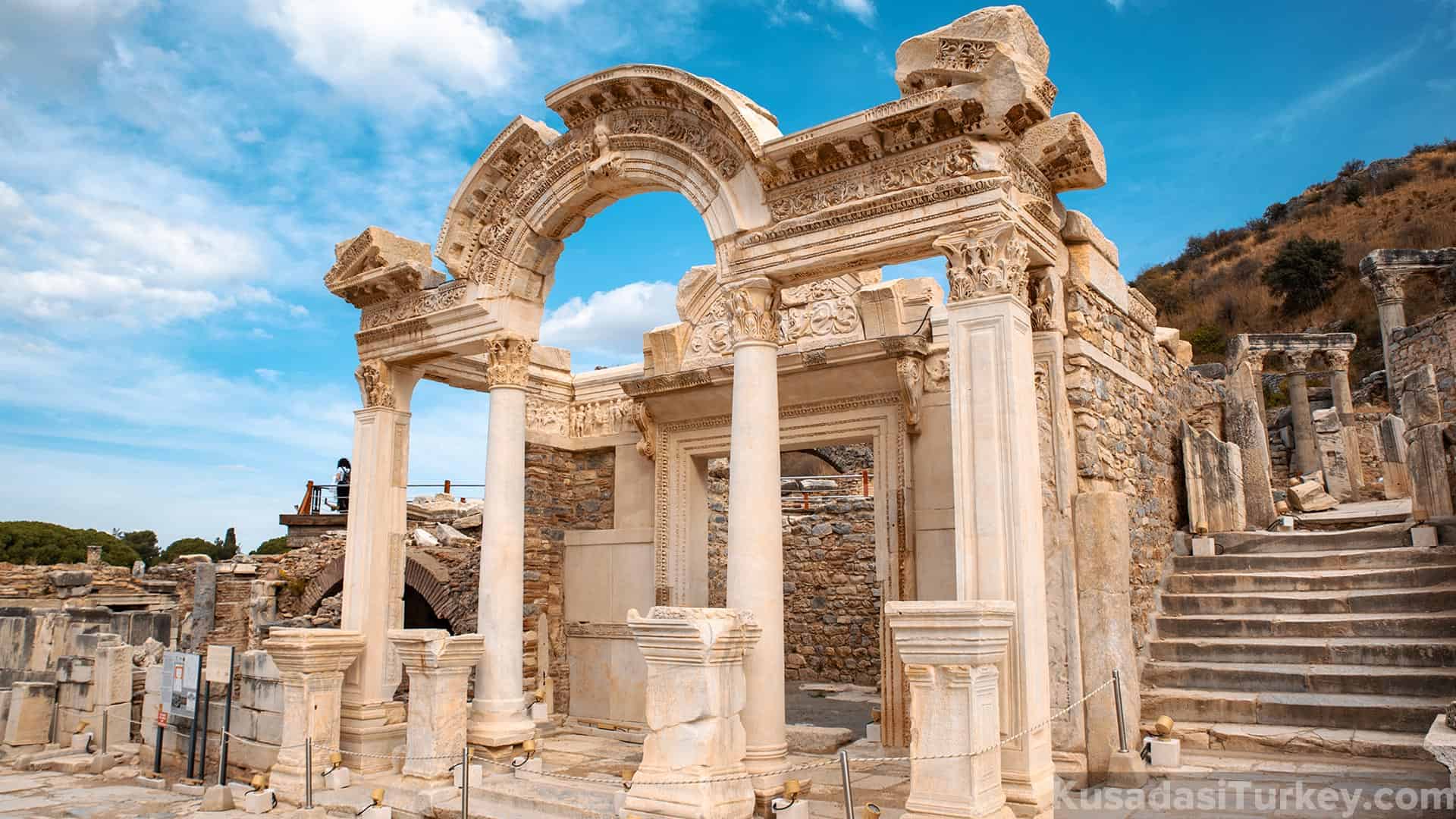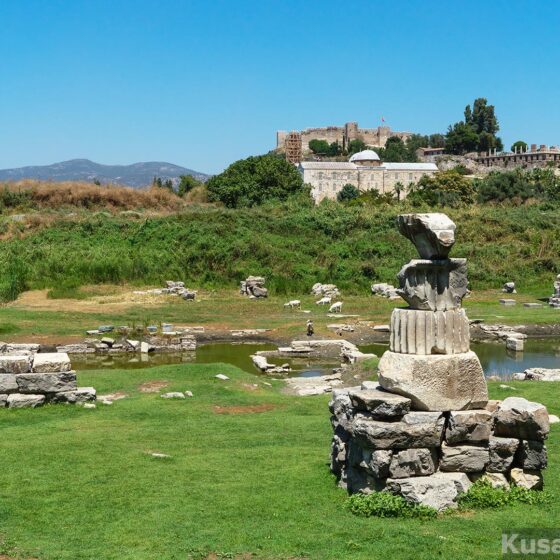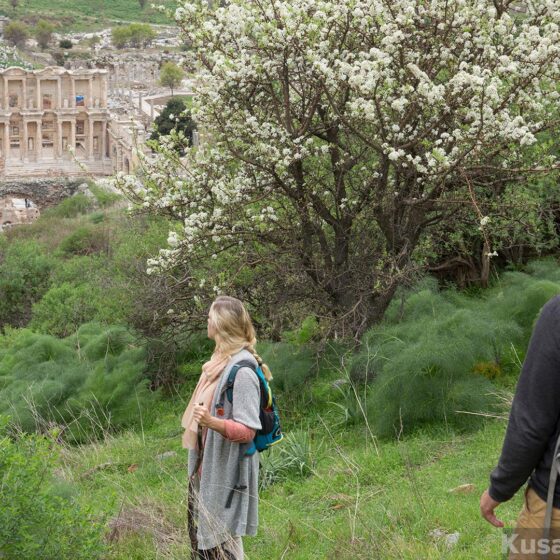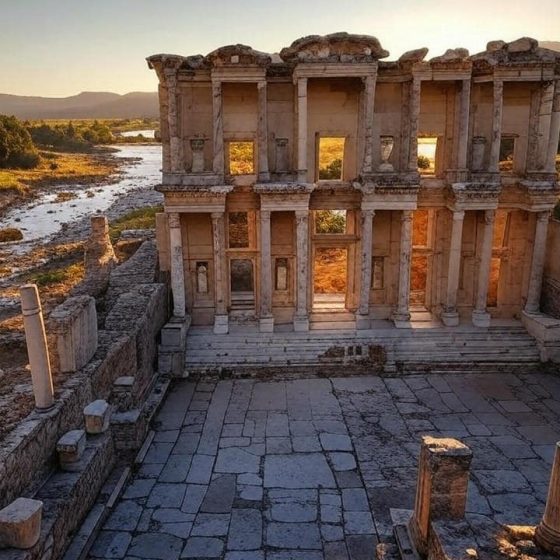Table of Contents Show
Turkey is a treasure trove of culture, history, and gastronomy. Yet beyond its buzzing bazaars, ancient baths, and famous kebabs lies a city that is a testament to a time gone by, the magnificent city of Ephesus.
So, buckle up as we journey through time to explore five intriguing facts about this UNESCO World Heritage site, which makes Ephesus an essential pit-stop on your Turkish escapade.
A Centerpiece of Ancient Civilizations
Ephesus was far more than an ordinary city in the annals of history. Founded in the 10th century BC by Greek colonists, Ephesus grew into one of the largest and most influential cities of the ancient world. Strategically located by the Aegean Sea, it became a bustling trade hub and a nexus for cultural and intellectual exchange. With its population peaking at a quarter-million in the 1st century BC, Ephesus was the world’s second-largest city of that time.
See also: Exploring Ephesus in Style: Allure of Private Tours
Home to a Wonder of the Ancient World
The Temple of Artemis, one of the Seven Wonders of the Ancient World, resided in Ephesus. Dedicated to the Greek goddess Artemis, this architectural marvel boasted 127 columns each standing 60 feet high and was four times as big as the Parthenon in Athens. Today, the temple no longer stands in its full glory, but its foundations and a single rebuilt column offer visitors a glimpse of its erstwhile magnificence.
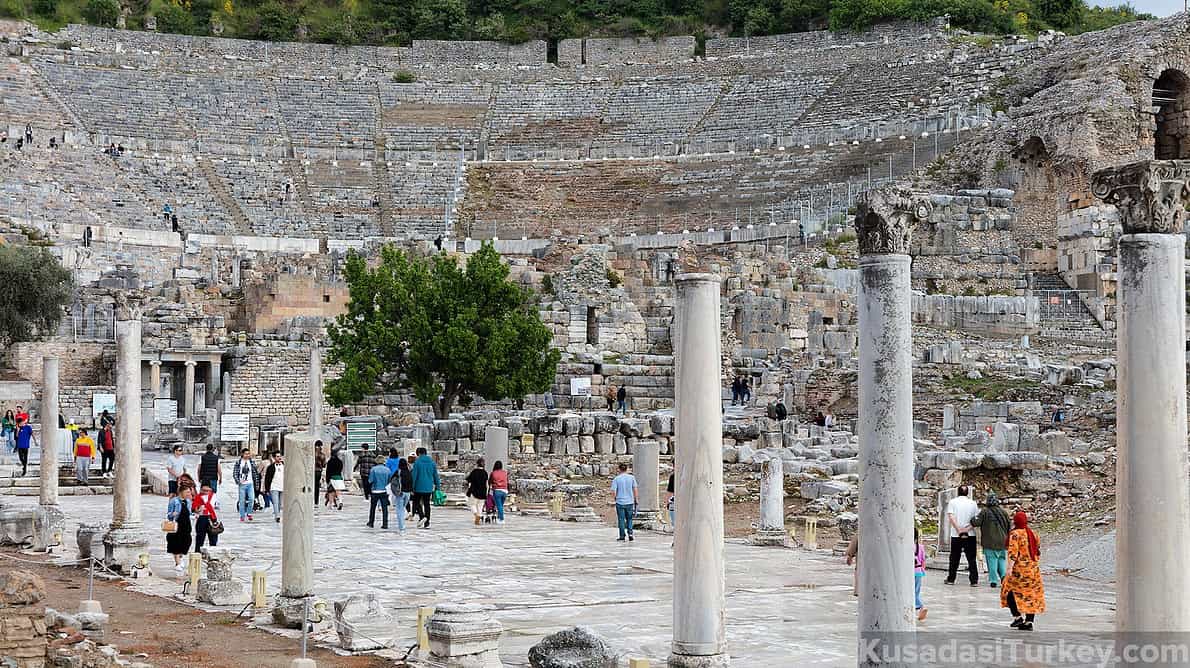
The Library of Celsus: A Beacon of Knowledge
Ephesus was the location of the Library of Celsus, one of the most impressive libraries of the ancient world, capable of housing 12,000 scrolls. Built in the 2nd century AD, this magnificent edifice was more than a repository of scrolls; it symbolized the intellectual vigour of Ephesus. Though the scrolls are long lost, the majestic façade still towers at the site, a silent testament to the city’s rich intellectual heritage.
A Significant Site for Early Christianity
Ephesus holds a special place in the Christian narrative. The Bible’s Book of Revelation refers to it as one of the seven churches of Asia. Moreover, it is believed that the Gospel of John was written in Ephesus. The city is also revered as a pilgrimage site, purportedly hosting the House of the Virgin Mary, believed to be the final residence of Jesus’s mother.
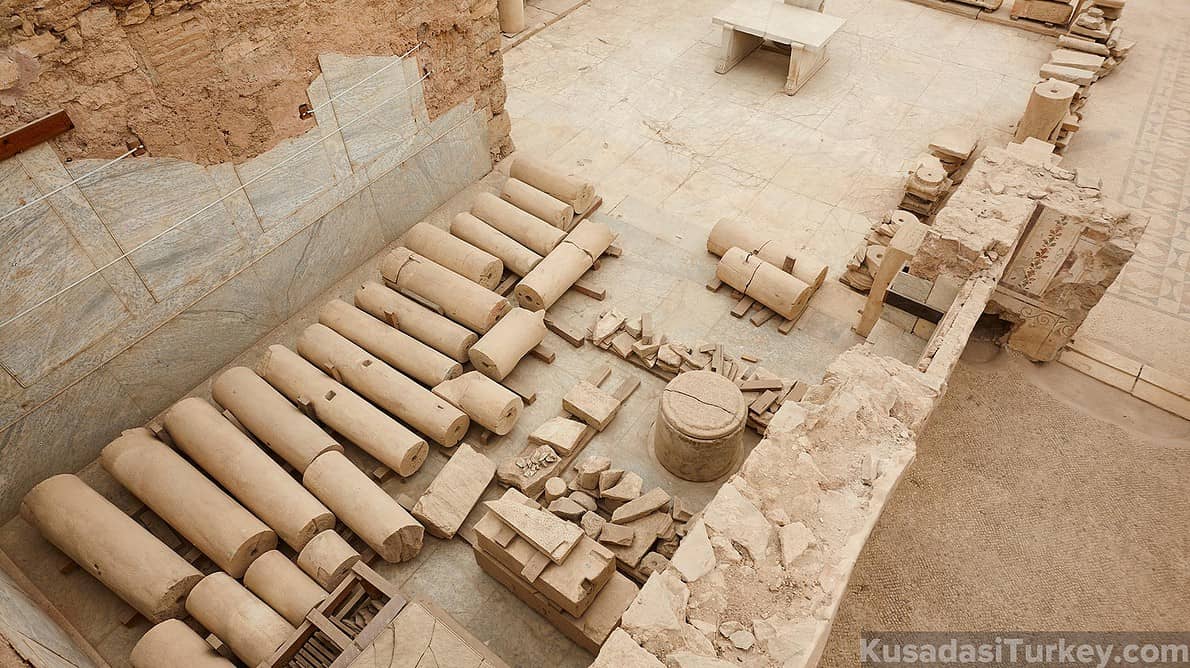
Ephesus: A Trailblazer City
Ephesus was ahead of its time in many respects. It had the distinction of etching the world’s first known advertisement into marble, intriguingly pointing the way to a nearby brothel. The city also had one of the earliest aqueduct systems, supplying running water to its inhabitants. It is even speculated that the philosopher Heraclitus first introduced the concept of “citizenship” here.
Ephesus is more than an archaeological site; it is a window into the past that brings history alive, offering modern-day explorers a chance to walk through a city that once was. So, when you map out your Turkish adventure, remember to ink in Ephesus, for it promises a rendezvous with history you wouldn’t want to miss.
Last updated on February 10, 2024

